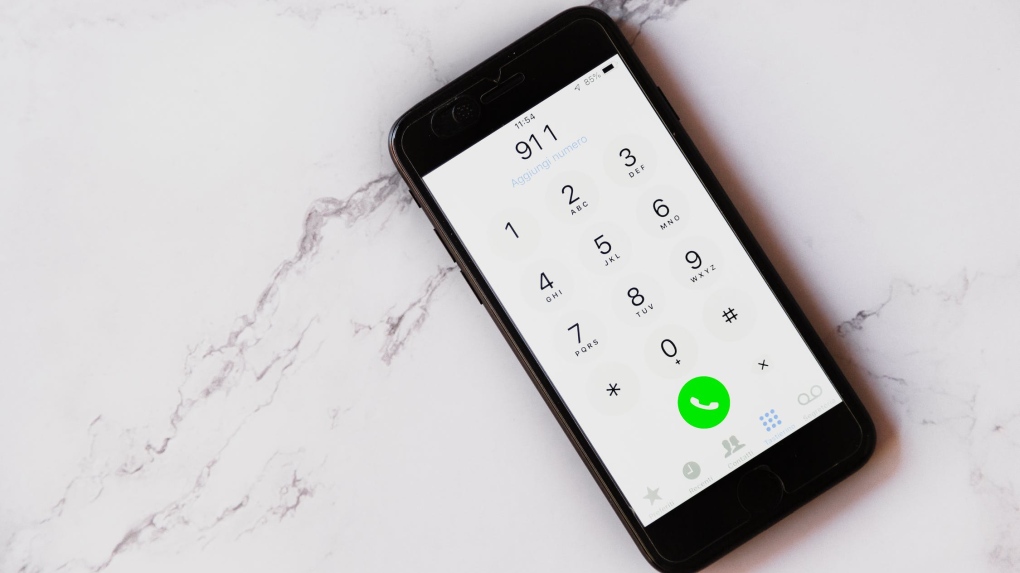Funding crucial to stopping 'catastrophic failure' of B.C.'s 911 system, union says
 File photo. (Oleg Magni / Pexels)
File photo. (Oleg Magni / Pexels)The union representing B.C.'s 911 dispatchers says funding is crucial to stopping the system's potential "catastrophic failure."
In recent months E-Comm, B.C.'s multi-municipality agency that connects 911 callers to the proper emergency service provider, has faced longer-than-usual wait times for those needing emergency help.
E-Comm explained previously that the waits are largely due to staffing shortages with B.C. Emergency Health Services, and that when a caller can't get through or is put on hold when calling 911, it may be because a dispatcher is waiting with a previous caller for a BCEHS counterpart to answer the phone.
In a statement Thursday, the union that represents many of these workers agreed the service is understaffed, but also said it's facing "a critical funding shortage."
"A recent report commissioned by E-Comm by Price Waterhouse Coopers concluded that the organization cannot be successful with an understaffed system that relies so heavily on overtime and staff missing breaks or that simply abandons efforts to meet service levels," a statement from Emergency Communications Professionals of BC says.
The union said that report outlined the current roster of 153 full-time call takers must nearly double to meet operational demands. It also said overtime costs in 2020 added up to nearly $3 million, which it said could have supported 35 more full-time positions.
According to the union, the funding model is "reactionary in design," and is based on past use. The union claims funding doesn't "provide a necessary cushion needed for high-demand situations."
"The 911 system is a basic and universal necessity critical to public health and safety for all British Columbians," said Donald Grant, CUPE 8911 president, in a news release.
"When you call 911 in an emergency, each and every second can mean the difference between life and death."
The union said workers are expected to answer 911 calls in five seconds or less, police emergency lines in 10 seconds or less and non-emergency lines in three minutes or less. But recent staff shortages have meant some wait times on police emergency lines have exceeded 20 minutes, while non-emergency wait times have been longer than five hours in some situations.
In its statement, the union said "an immediate infusion of financial resources" is needed.
"The current situation is creating a dangerous cycle: our dedicated members who handle 99 per cent of the 911 calls across B.C. are breaking under the pressure of a system in failure, which only makes the situation worse," Grant said.
With files from CTV News Vancouver's Penny Daflos
Must Watch
Top Videos
CTVNews.ca Top Stories

'True when I said it, true today': former Canadian PM Harper pushes back against Trump on social media
Former prime minister Stephen Harper doesn’t find U.S. president-elect Donald Trump’s jibes about Canada becoming the 51st U.S. state very amusing.
2 hours ago
LIVE UPDATES Uncontained L.A. wildfires are still burning. Here's the latest as firefighters battle the flames
A series of wildfires are tearing through densely populated parts of the Los Angeles, Calif. area. Five people have been reported dead. About 130,000 have been asked to evacuate. Nearly 2,000 homes and other buildings have been destroyed after the fires charred about 108 square kilometres.
17 min ago
NEW Tipping guide to Canada: When, where and how much to tip for restaurants, taxis and more
CTVNews.ca has created an entirely unofficial guide to tipping in Canada to help visitors, newcomers and curious Canadians navigate the shifting social norms of when, where and how much to tip.
3 hours ago
Can the U.S. really make Canada the 51st state?
Talk of Canada becoming the 51st American state has raised an existential question on this side of the border: Could it be done? Could the maple leaf make way to the stars and stripes? According to several experts, it may be possible, but not painless.
3 hours ago
UPDATED | U.S. says it has no plans to increase military presence in Greenland
The United States has no current plans to increase its military presence in Greenland, the U.S. embassy in Copenhagen said on Thursday, after President-elect Donald Trump expressed renewed interest in acquiring the vast Arctic island.
45 min ago
NEW | Cape Breton police ask for public's help in finding Justin MacDonald's remains
Police in Cape Breton are asking for the public’s help in finding the remains of a missing man they believe was murdered.
22 min ago
'This isn't just my mom's story,' says daughter of woman allegedly killed by partner
Abigail Robson says she moved from Nova Scotia to Alberta as a young girl with her mother 10 years ago for a fresh start.
Prince William praises his wife Kate as he wishes her a happy birthday
Prince William praised the strength of the Princess of Wales after a turbulent year, offering a 43rd birthday wish on social media on Thursday that described her as an incredible wife and mother.
3 hours ago
How cold does it need to get before iguanas start falling out of trees in Florida?
It's a South Florida phenomenon that draws amusement from across the country — when temperatures drop below a certain level, cold-stunned iguanas start falling out of trees.
1 hour ago

























































